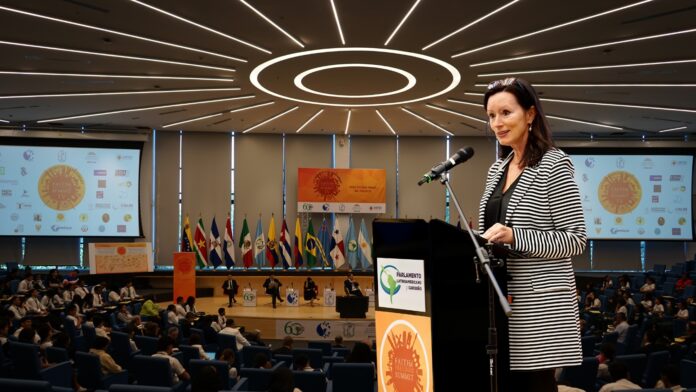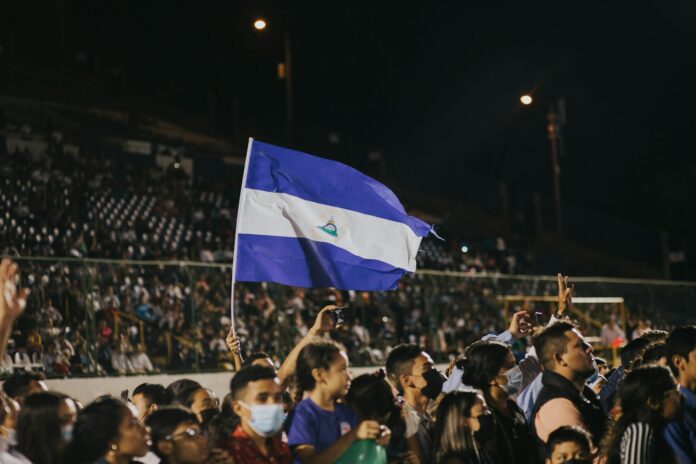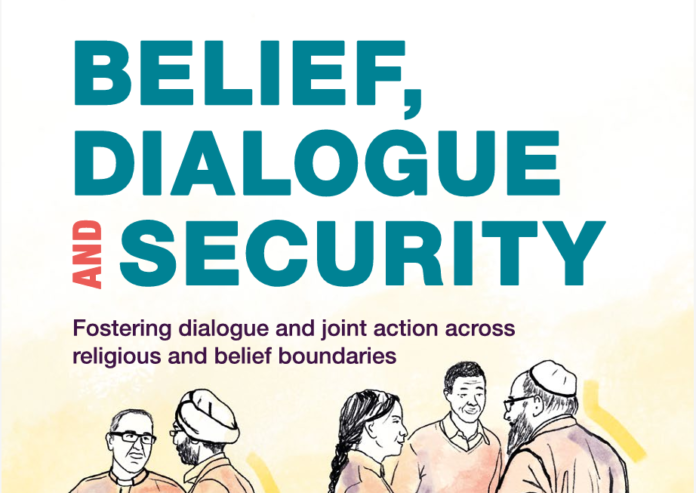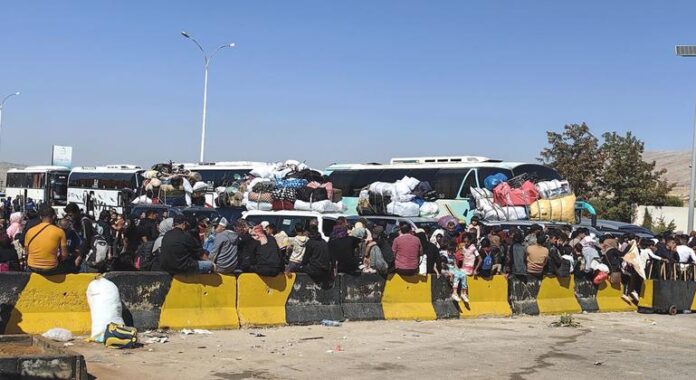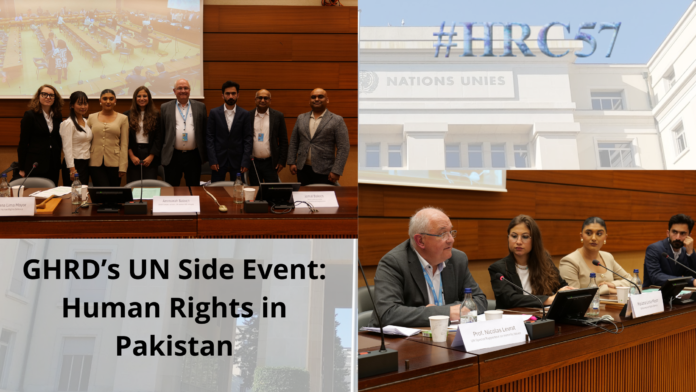U.S. Commission on International Religious Freedom (USCIRF) Commissioner Ms Maureen Ferguson participated as a keynote speaker at the IV Edition of the Faith & Freedom Summit NGO Coalition, held 24-25 September at the Latin American Parliament in Panama City of 40 international speakers and participated by Christians, Muslims, Buddhists, Scientologists, Indigenous Mayan, Sikhs, Hindus, non-believers and others.
In a compelling address at the Faith and Freedom Summit IV “practicing what we preach” in Panama, Commissioner Ferguson called for a renewed commitment to advocating for religious freedom worldwide. Her remarks, delivered during the conference’s final panel on FoRB through Diplomacy, underscored the critical role of diplomacy in promoting this fundamental human right. She shared panel with Founder and CEO of IRF Secretariat Greg Mitchel, Ivan Arjona-Pelado, David Trimble, Jan Figel, HE Bouchra Boudchiche of the Embassy of Morocco, and Archbishop Thomas Schirrmacher.
Ferguson opened her speech with warmth and enthusiasm, encouraging audience and rest of speakers to further dive into discussions focused on achieving freedom of religion or belief through diplomatic efforts. She emphasized that USCIRF is an independent, bipartisan advisory body created by Congress in 1998, dedicated to monitoring and reporting on religious freedom conditions globally. “We defend this essential freedom internationally for people of all religions and beliefs, as well as for those who choose to follow no religion or belief,” she asserted.
In her address, Ferguson outlined key steps that governments can take to ensure that their foreign policy prioritizes religious freedom. She urged nations to establish independent agencies tasked with assessing religious freedom conditions abroad, stating, “This independence will help guarantee that competing diplomatic priorities do not influence or sway the agency’s assessments.” She highlighted USCIRF’s role in this process, noting that the commission releases an annual report documenting violations of religious freedom worldwide, including the plight of Uyghur Muslims in Xinjiang and the persecution of religious minorities in Nicaragua.
Ferguson emphasized the importance of accountability in addressing religious freedom violations, referencing the International Religious Freedom Act, which mandates that the U.S. State Department designate countries with severe violations as Countries of Particular Concern (CPCs). “When a country is designated as a CPC, the law requires our President to take one or more policy actions to hold that country accountable,” she explained.
She also shared three vital lessons learned from U.S. diplomatic efforts to protect religious freedom. First, she stressed the necessity of building partnerships with like-minded governments to address violations, citing the United Nations Human Rights Council’s resolutions condemning persecution in Nicaragua as a successful example of international collaboration. “Support from this broad coalition helped the Human Rights Council create a group of experts dedicated to reporting on the religious freedom and human rights violations in Nicaragua,” she noted.
Second, Ferguson highlighted the importance of direct communication between governments regarding religious freedom violations. “Such direct communication is a good opportunity to raise the case of individuals who are harassed, detained, or imprisoned on the basis of their religion or belief,” she stated, emphasizing that advocacy involves not only condemning bad behavior but also encouraging positive change.
Lastly, she called for stronger relationships between governments and civil society organizations, which often serve as the first line of defense against emerging violations. “Civil society groups are often the first to recognize emerging religious freedom violations and to bring the world’s attention to them,” she remarked, underscoring their invaluable role in informing effective protective measures.
Before concluding, Commissioner Maureen Ferguson introduced a vital resource developed by USCIRF: a victims list that tracks the cases of individuals persecuted for their religious beliefs. “There are well over 2,000 profiles in this searchable database,” she revealed, inviting governments and civil society partners to utilize this tool to advocate for the victims.
In her closing remarks, Maureen Ferguson expressed her gratitude for the opportunity to speak and reflected on her personal journey. “One of the greatest proofs of the existence of God is the obvious and ugly example of the existence of evil,” she shared, acknowledging the challenges faced in the fight for religious freedom. However, she also celebrated the presence of goodness and truth among the attendees, stating, “Being with all of you has just been a wonderful experience of the universality of the good and the true and the beautiful.”
Ferguson’s impassioned address resonated deeply with the audience, leaving them inspired to continue their vital work in advancing religious freedom for all.
The Faith and Freedom Summit IV was organised by a coalition of NGOs dedicated to the promotion of religious freedom and peaceful coexistence, and was attended by numerous personalities such as the OAS Representative in Panama H.E. Mr Rubén Farje, Reverend Giselle Lima (Co-Coordinator of the Panama Roundtable on Religious Freedom in Panama, Mr. Iván Arjona-Pelado (recently appointed Chair of the NGO Committee on FoRB for the United Nations in Geneva and who presented the web www.whatisfreedomofreligion.org from the Church of Scientology), Mr. Jan Figel who is former EU Special Envoy on FoRB, and it was opened and closed by the Minister In Charge of Interior and Minister In Charge of Foreign Affairs of the Government of Panama, plus ambassadors from different countries.



